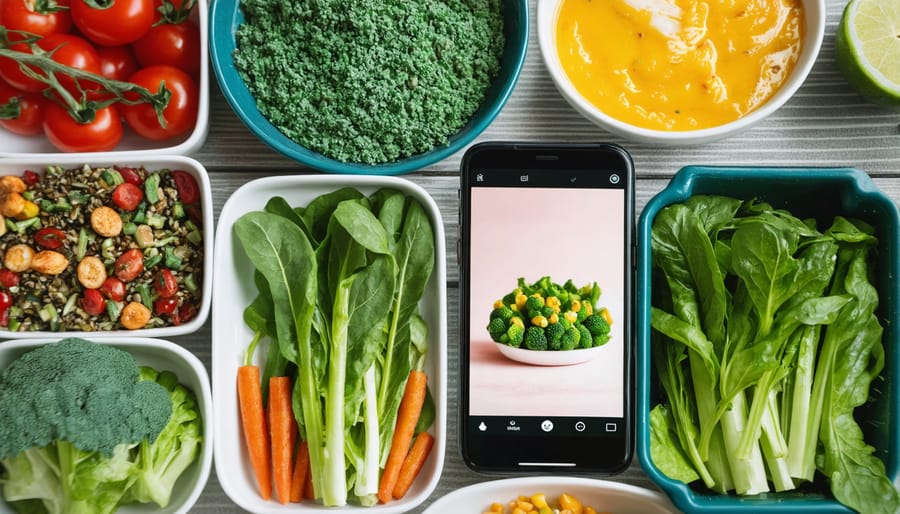
Millennials are radically reshaping modern living, championing a lifestyle that prioritizes experiences over possessions and authenticity over tradition. From transforming remote work into the new normal to driving the explosive growth of plant-based diets and sustainable fashion, this generation’s choices are creating ripple effects across industries and social norms. Their distinctive approach to life – embracing minimalism, prioritizing mental health, and demanding work-life integration rather than mere balance – isn’t just a passing trend but a fundamental shift in how we define success and fulfillment.
As a millennial navigating these changes alongside my peers, I’ve witnessed firsthand how our generation is crafting a new blueprint for modern living. We’re the first generation to face astronomical student debt while simultaneously pioneering the digital nomad movement. We’re choosing to marry later, invest differently, and rewrite traditional milestones on our own terms. This isn’t rebellion for its own sake – it’s a thoughtful response to changing economic realities and evolving social values.
Through this lens, let’s explore the key lifestyle trends shaping millennial life in 2024, from our revolutionary approach to work and relationships to our distinctive spending habits and wellness priorities.
Mindful Consumption: The New Shopping Reality
Quality Over Quantity
Gone are the days of fast fashion hauls and impulse buys. Millennials are increasingly embracing a more thoughtful approach to consumption, choosing to embrace minimalist living and invest in quality pieces that stand the test of time. I’ve noticed this shift in my own shopping habits, and it’s remarkable how this mindset transforms not just our closets, but our entire approach to purchasing decisions.
Instead of filling our homes with throwaway items, we’re carefully selecting pieces that bring genuine value to our lives. Whether it’s a well-crafted leather bag that ages beautifully, sustainable home furnishings that will last for decades, or professional-grade kitchen equipment that makes cooking a joy, millennials are willing to spend more upfront for lasting quality.
This trend extends beyond material possessions. We’re investing in experiences that enrich our lives, choosing quality time with loved ones over accumulating stuff. When we do make purchases, we’re researching thoroughly, reading reviews, and considering the environmental and social impact of our choices.
The rise of “buy less, buy better” reflects a deeper understanding of value and sustainability. It’s about creating a thoughtfully curated life where every purchase serves a purpose and brings genuine satisfaction, rather than temporary pleasure from constant consumption.
Sustainable Beauty and Fashion Choices
As millennials continue to reshape consumer habits, sustainable beauty and fashion have moved from niche interests to mainstream priorities. We’re seeing a dramatic shift in how this generation approaches their beauty routines and wardrobes, with an increasing focus on both environmental impact and personal wellness.
Clean beauty has become a non-negotiable for many millennials, who carefully scrutinize ingredient lists and favor brands that prioritize transparency. Natural, cruelty-free products are no longer just trendy – they’re expected. From reef-safe sunscreens to zero-waste shampoo bars, millennials are embracing products that align with their values while delivering results.
In fashion, the “buy less, buy better” philosophy has taken hold. Capsule wardrobes, featuring versatile, high-quality pieces that last longer, are replacing fast fashion hauls. Thrifting and clothing rental services have shed their stigma, becoming go-to options for fashion-conscious millennials looking to minimize their environmental footprint while staying stylish.
Many millennials are also embracing innovative sustainable materials, from recycled ocean plastics in activewear to vegan leather alternatives. The rise of clothing resale apps and sustainable fashion brands reflects this generation’s commitment to circular fashion – where items are reused, recycled, or biodegradable.
What’s particularly inspiring is how this movement has created a community of conscious consumers sharing tips, recommendations, and encouragement as we all work toward more sustainable choices.

The Digital-First Lifestyle
Smart Home Integration
For millennials, transforming their living spaces into tech-powered sanctuaries isn’t just about following trends – it’s about creating homes that truly understand and anticipate their needs. From voice-controlled lighting systems to smart thermostats that learn your temperature preferences, these digital natives are embracing automation like never before. Check out our comprehensive smart home integration tips to get started on your own tech transformation.
What’s fascinating is how millennials are combining functionality with sustainability. Smart plugs help monitor energy usage, while automated window blinds maximize natural light and reduce heating costs. Video doorbells and smart security systems offer peace of mind, especially for those juggling work-from-home schedules. Many are controlling their entire home ecosystem through smartphone apps, from preheating ovens during their commute to scheduling robot vacuums while they’re at yoga class.
The real game-changer? Smart speakers have become the heart of millennial households, acting as personal assistants, entertainment hubs, and shopping helpers. They’re not just investing in gadgets; they’re creating intuitive living spaces that reflect their values of efficiency, sustainability, and work-life balance. The best part? These smart upgrades often pay for themselves through reduced energy bills and increased home value.

Digital Wellness Balance
In a world where we’re constantly connected, millennials are pioneering a more mindful approach to technology use. We’re discovering that the key isn’t about completely unplugging, but rather finding that sweet spot between staying connected and maintaining our mental wellbeing.
Many of us are embracing “tech-life integration” rather than total digital detox. This might look like designating phone-free zones in our homes (hello, peaceful bedroom!), setting specific times for social media checks, or using apps that actually help us monitor and reduce screen time – talk about fighting fire with fire!
I’ve noticed a growing trend among my millennial friends: “conscious connectivity.” We’re getting better at distinguishing between meaningful online interactions and mindless scrolling. Some are adopting the “sunset switch-off” routine, where devices go into do-not-disturb mode as the sun sets, while others swear by “digital-free Sundays” for quality time with family and friends.
The rise of wellness apps and meditation platforms shows we’re not anti-tech – we’re just more intentional about how we use it. It’s about creating boundaries that work for our lifestyle while staying connected to what truly matters.
Food and Dining Evolution
Plant-Based Revolution
Gone are the days when plant-based eating was considered a niche lifestyle choice. Millennials are leading a food revolution that’s transforming how we think about our plates and the planet. As someone who gradually shifted towards more plant-forward meals, I’ve witnessed firsthand how this movement has evolved from strict veganism to a more flexible, inclusive approach.
What’s fascinating is how this generation embraces “flexitarian” eating – combining predominantly plant-based meals with occasional animal products. This shift isn’t just about personal health; it’s deeply rooted in environmental consciousness and ethical considerations. More millennials are adopting sustainable eating habits that align with their values while maintaining dietary flexibility.
Plant-based alternatives have exploded in popularity, with everything from oat milk lattes to impossible burgers becoming mainstream menu items. What’s particularly interesting is how social media has amplified this movement, with Instagram-worthy Buddha bowls and colorful smoothies inspiring others to explore plant-based cooking.
The trend extends beyond just food choices – it’s creating communities. Millennials are joining cooking clubs, sharing recipes online, and supporting local farmers’ markets. They’re proving that plant-based living doesn’t mean sacrifice; instead, it’s about discovering new flavors, getting creative in the kitchen, and making mindful choices that benefit both personal health and environmental sustainability.

Experience-Based Dining
For millennials, dining has evolved far beyond mere sustenance – it’s become a social experience and a form of cultural exploration. We’re seeing a significant shift toward shared plates and family-style dining, where groups gather to sample multiple dishes and create memorable moments together. This trend reflects our generation’s desire for connection and community building through food.
Food halls and markets have become the new social hubs, offering diverse culinary options under one roof. These spaces cater perfectly to our love for variety and authentic experiences, allowing us to hop from a Korean street food stall to an artisanal pizza counter in one visit. Many of us document these adventures on social media, turning our meals into shareable content that inspires others to explore new flavors.
The rise of supper clubs and pop-up dining experiences speaks to our craving for unique, limited-time events. These intimate gatherings combine the comfort of home dining with the excitement of restaurant-quality food, often featuring up-and-coming chefs and experimental menus. We’re also seeing a surge in cooking classes and food tours, where millennials learn about different cuisines while building connections with like-minded food enthusiasts.
What’s particularly interesting is how this generation approaches special occasions. Instead of traditional fine dining, many opt for interactive experiences like chef’s tables, themed brunches, or DIY food bars. This shift reflects our preference for casual, experiential dining over formal, structured meals.
Work-Life Integration
Remote Work Culture
The shift to remote work has fundamentally transformed how millennials approach their work-life balance, and I’ve witnessed this change firsthand among my circle of friends. Gone are the days of rigid 9-to-5 schedules and long commutes. Instead, we’re embracing a more fluid approach to when and where we work, creating ripple effects throughout our daily lives.
Many millennials are now choosing to live in locations based on lifestyle preferences rather than proximity to an office. Some are exploring the “digital nomad” lifestyle, working from different cities or even countries, while others are using their newfound flexibility to spend more time with family or pursue passion projects.
This flexibility has sparked interesting trends in home design and daily routines. Home offices have become essential spaces, with millennials investing in ergonomic furniture and creating Instagram-worthy workspace setups. The traditional lunch break has evolved into opportunities for midday workouts, grocery shopping during off-peak hours, or catching up with friends over virtual coffee dates.
However, remote work isn’t without its challenges. Many millennials are developing new strategies to maintain work-life boundaries, like setting specific work hours, creating dedicated workspace zones, and using digital tools to stay connected with colleagues. Some are joining co-working spaces or remote work communities to combat isolation and maintain professional networking opportunities.
The remote work culture has become more than just a workplace trend – it’s reshaping how millennials think about career advancement, personal time, and community building in the digital age.
Side Hustle Economy
Gone are the days when a single 9-to-5 job was the norm. Today’s millennials are embracing the “multiple streams of income” mindset with enthusiasm and creativity. Whether it’s turning a hobby into a profitable Etsy shop, freelancing on weekends, or building a personal brand on social media, side hustles have become an integral part of millennial financial strategy.
What’s fascinating is how this generation has redefined the concept of work itself. Rather than viewing side hustles purely as money-makers, millennials are using them as vehicles for self-expression and personal fulfillment. A recent survey showed that 61% of millennial side hustlers started their ventures not just for extra cash, but to pursue their passions.
Take Sarah, a marketing executive who runs a successful food blog on weekends, or Mike, who turned his plant-care expertise into a thriving Instagram consultancy. These aren’t just side gigs – they’re passion projects that provide both creative outlet and financial security.
The digital economy has made it easier than ever to monetize skills and interests. From virtual assistance and content creation to dropshipping and online coaching, the opportunities are endless. Many millennials are also leveraging platforms like Fiverr, Upwork, and Instagram to build their personal brands while maintaining their primary careers.
This shift towards multiple income streams isn’t just about making extra money – it’s about creating security in an uncertain economy while doing work that feels meaningful and authentic. For many millennials, the side hustle economy represents freedom, creativity, and the ability to design life on their own terms.
As we reflect on the profound impact millennials have made on modern society, it’s clear their influence extends far beyond mere trends. This generation has fundamentally reshaped how we approach work, living spaces, relationships, and consumption. Their emphasis on work-life balance has sparked a revolution in workplace culture, leading to more flexible arrangements and a focus on mental well-being that benefits all generations.
The millennial preference for experiences over possessions has transformed industries, from travel and hospitality to retail and entertainment. Their digital-first mindset hasn’t just changed how we communicate—it’s revolutionized everything from dating to grocery shopping. This generation’s commitment to sustainability and social responsibility has pushed companies to become more environmentally conscious and ethically minded.
What’s particularly fascinating is how these trends have rippled through society, influencing both older and younger generations. Gen Z has embraced and built upon many millennial values, while Baby Boomers have increasingly adopted digital payment methods and remote work practices initially championed by millennials.
As we look ahead, it’s clear that millennial lifestyle choices aren’t just passing fads. They represent a fundamental shift in how we view success, happiness, and fulfillment. Their prioritization of mental health, sustainable living, and authentic experiences has created lasting changes that will continue to shape our society for years to come. The millennial legacy isn’t just about avocado toast and Instagram—it’s about creating a more flexible, conscious, and connected world.



